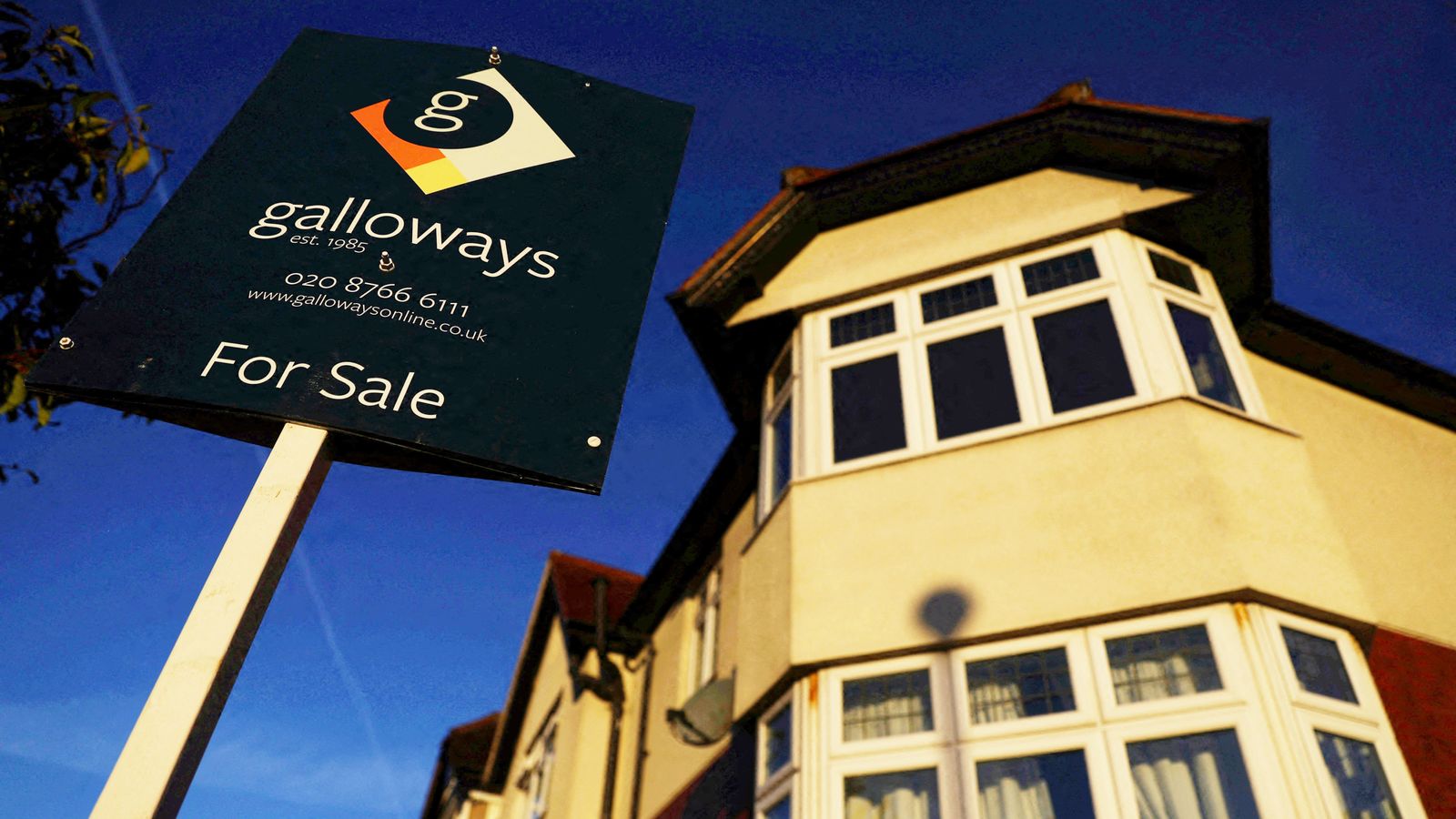House prices recorded their “worst run” since 2008 following a fourth consecutive monthly decline in December, according to a closely-watched measure.
Mortgage lender Nationwide’s index charted a sharp slowdown in the annual rate of price growth – to 2.8% this month following the 4.4% recorded in November.
It said prices dipped 0.1% in December compared with November.
The decline was much smaller than the 0.7% fall that a Reuters poll of analysts had expected.
It marked the restoration of a measure of calm after the plunge witnessed in the wake of the mini-budget chaos of September that saw borrowing costs soar and many mortgage lenders, including Nationwide, suspend loans temporarily.
At the same time, the Bank of England has been raising its rate to tackle energy-led inflation – still at a 40-year high – in a series of hikes that have raised home loan repayments for those on tracker and standard variable rates.
“While financial market conditions have settled, mortgage rates are taking longer to normalise and activity in the housing market has shown few signs of recovery,” Nationwide chief economist Robert Gardner said.
House prices drop at fastest rate since financial crash in 2008
House prices: Mini-budget ‘turmoil’ behind first monthly fall for 15 months
High rents and longer tenancies boost Foxtons revenues
“It will be hard for the market to regain much momentum in the near term as economic headwinds strengthen, with real earnings set to fall further and the labour market widely projected to weaken as the economy shrinks.
“The recent weakness in mortgage applications may, in part, represent an early seasonal slowdown.
“With the chaotic backdrop and elevated mortgage rates in recent months, it wouldn’t be surprising if potential buyers have opted to wait until the New Year to see how mortgage rates evolve before deciding to step into the market.
“Longer-term interest rates, which underpin mortgage pricing, have returned towards the levels prevailing before the mini-budget.
“If sustained, this should feed through to mortgage rates and help improve the affordability position for potential buyers, as will solid rates of income growth (currently running at a 7% pace in the private sector), especially if combined with weak or negative house price growth.”










